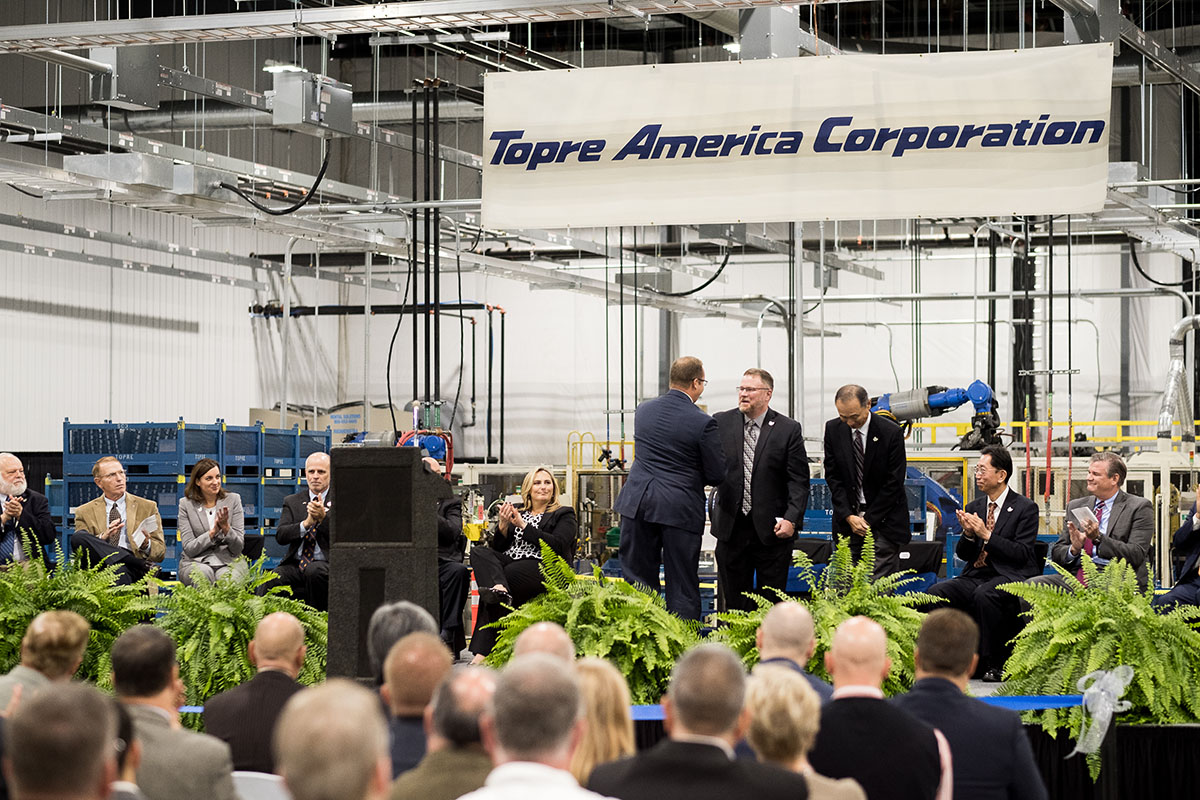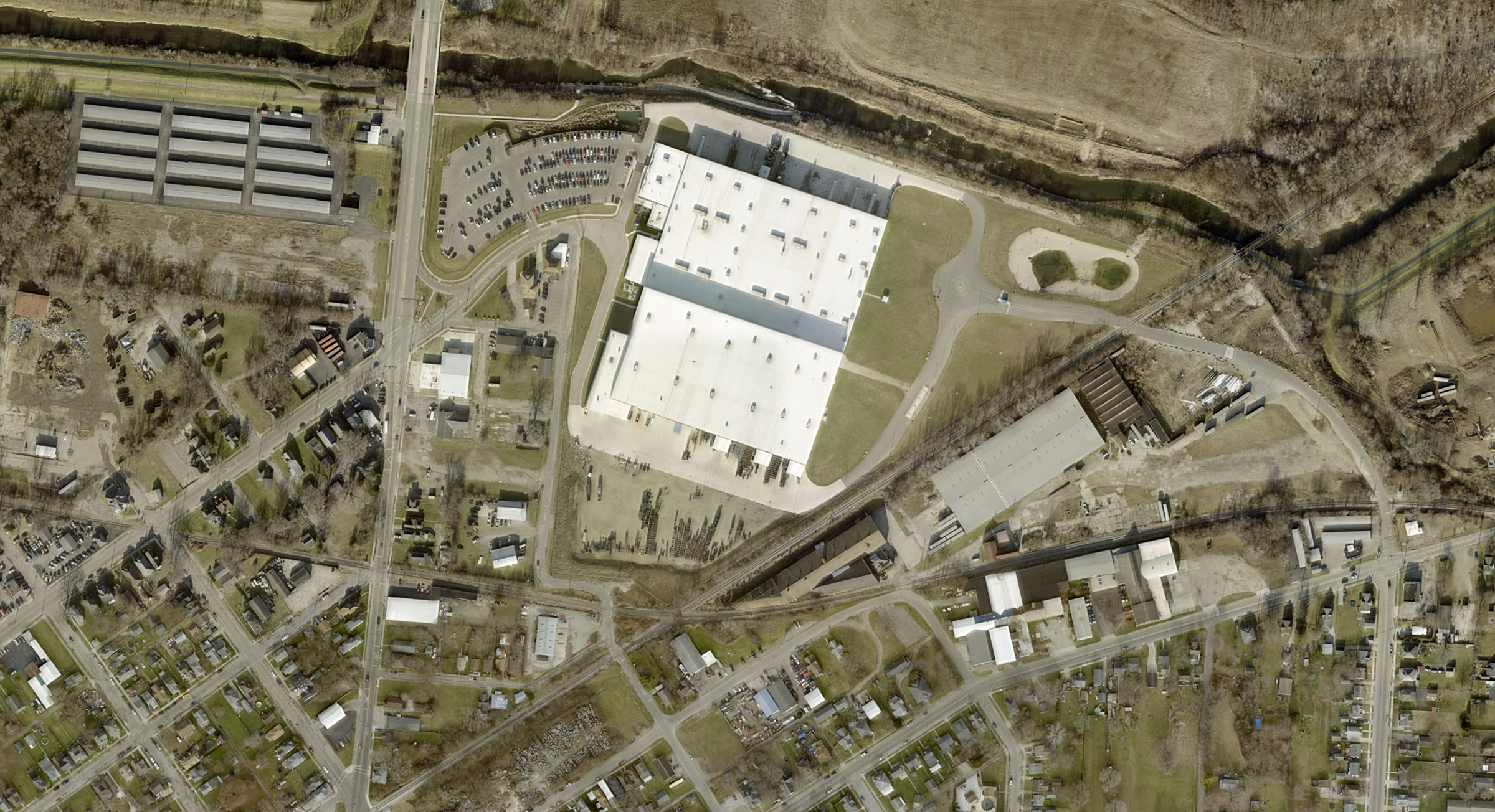Image courtesy of City of Lubbock, TX
By
The 30-acre brownfield property, just on the border of downtown Springfield in Clark County, Ohio, had been vacant for years, even after a state-funded clean-up. It was the type of lot elected officials dream of filling with a big corporate headquarters.
The Mid-America Economic Development Council President, Horton Hobbs IV, knew Amazon was too big for Clark County’s nearly 200,000 residents. He kept looking for a good fit. Meanwhile, city and county commissioners worked with the school district to improve schools, create beautiful parks, protect their water supply, and invest in safety-related services.
The work for a better community pays off when a corporation makes a big site selection decision. It’s all part of a forward-focused strategy: Landing big companies requires investments in quality of living — as well as an in-depth understanding of the region’s strength, the ability to find solutions, a welcoming attitude, and a unified front.
“As a community, we found that we are truly better together,” said Dr. David Estrop, a Springfield city commissioner and former school board superintendent. “We realized that businesses don’t exist in a vacuum, and you have to look beyond putting money on the table.”
Today, Topre America Corporation, an international company that manufactures electronic parts for automobiles, has its North American headquarters on that brownfield.
As corporations continue to expand and move facilities into new communities, city and county officials throughout the United States are gaining experience in the process. They’re learning that modern corporate site selection is less about incentives — although they can help — and more about creating a warm yet strategic pathway to success.

Image courtesy of Horton Hobbs IV, VP of Economic Development with the Greater Springfield Partnership
Hobbs, who helped broker the deal with Topre, said the win for Springfield required both private and public sectors to support a common goal.
“There is a place for politics, and it’s creating a welcoming place and removing boundaries to growth and development if the community desires it,” Hobbs said. “If you take a relationship approach to site selection, you end up with sustainable economic development in your community.”
He recommends uniting the goals and desires of all political districts, schools, and the private sector before the first talk with a corporate representative. “It may be worthwhile to hold a public charette so the residents can feel heard before any big changes are announced.
Then, make sure utilities are available on lots that could be attractive to companies. And while you’re at it, upgrade the city’s internet presence — because you never know when a corporation is researching your community,” Hobbs said.
The goal for that marketing is finding a company that shares the values of the residents, said Melanie Flax Wilt, the president of the Clark County Commission. The only way to discover that connection is through clear and honest communication.
“It’s important to be authentically who you are. Some communities will market themselves as very polished. Ours is a little rough around the edges, and you know, we like it,” she said. “We want employers who like it, too.”
When it came to closing the deal with Topre America, it helped that residents living nearby were already comfortable with the manufacturing use for the brownfield lot. Officials there worked to eliminate obstacles, so any pushback was limited.
“Clark County, Ohio, is open for business,” she said. “We continue to make it as easy as possible to locate here and be part of our community.”

Image courtesy of Horton Hobbs IV, VP of Economic Development with the Greater Springfield Partnership
Like all real estate deals, location plays a leading role when companies consider where to place their next investment. Hobbs said the corporations he works with have already determined a geographic radius that benefits them regarding transportation, logistics, and natural resources.
“You have to understand your market, where the population centers are, and identify the educational mix and the talent pipeline,” he said. “Then, you can map that out to leverage and strengthen your conversation.”
Steve Massengale, a councilman for the city of Lubbock, Texas, said the fact that the city had an excellent water supply in the middle of the high desert made it desirable to agricultural businesses. That was part of what sealed the deal with Leprino Foods, the world’s largest mozzarella cheese manufacturer. They built a $1 billion plant with 600 new jobs in Lubbock, but it took some negotiating.
“We had to find the right land at the right cost,” he said. “We didn’t come with the biggest financial package, but we came to the table with solutions.”
He said the city worked with the Lubbock Economic Development Alliance, which serves as the sales team for the community. They made sure to highlight Lubbock’s recent downtown revitalization projects as well as being home to both Texas Tech University and South Plains College.
A company’s interest in academics is a big change from the site selection process in previous years. Hobbs said that today’s corporations are looking for communities with academic opportunities that can provide them with skilled employees in the coming years.
“Our mantra used to be, ‘Build it and they will come,’ but it’s not like that today,” he said. “The workforce and the values have changed tremendously. If it doesn’t pass the talent test or pull from a larger area, that community will fall off the radar quickly.”

Image courtesy of Horton Hobbs IV, VP of Economic Development with the Greater Springfield Partnership
When your community is on a company’s radar, you want to stay on — or do you? Just as Amazon HQ2 was too big for Springfield, Ohio, there are many reasons why it’s not always in a city’s best interest to say “yes.”
Ron Salem, the city council President for Jacksonville, Florida, said that elected officials must consider the long-term stakes when working with the chamber of commerce and the business community to broker a good deal.
“If you’re not growing, you’re dying as a city,” he said. “It’s important that Jacksonville continue to increase its tax base. We look at the return on investment so that there’s as much money going out as we’re putting in.”
Jacksonville’s strategy is to leverage its positive reputation of consolidated government, beautiful climate, and good schools by being proactive. For example, the Jacksonville Jaguars football team has played games in London for the last decade to spread the word internationally and stay selective with its corporate interest.
As community leaders gain experience with the corporate site selection process, they start to get comfortable saying no.
“Size is one of the limitations we have,” said Estrop of Springfield. “You don’t want to overpromise what you can’t deliver because that will scare off others.”
Sometimes, it’s a matter of the gut, he added.
“If you’re not comfortable with the company potentially coming to the community, there’s probably a good reason for that,” he said. “You don’t want to see opportunities go by, but you don’t want anything to blow up in your face.”
Jono Klooster, the acting Economic Development Director for Grand Rapids, said they rarely say no — but it’s also rare that the company and everyone in the city get everything they hope for even when they say yes.
“No project receives consensus approval from everybody. There is compromise on all sides,” he said. “Focusing on the outcomes for the community allows us to work effectively across all organizations and individuals to achieve success.”
Magazine
Playmaker Events
Connect with playmaker